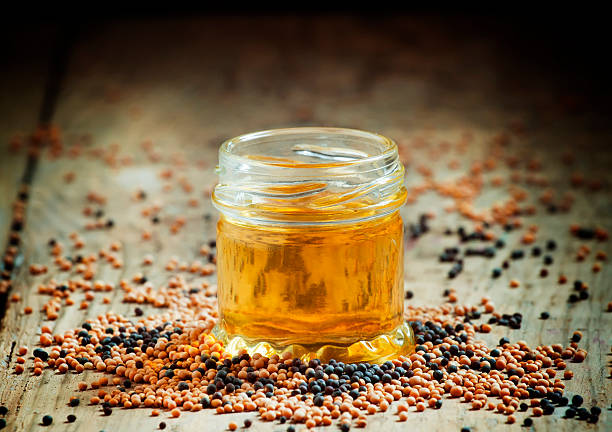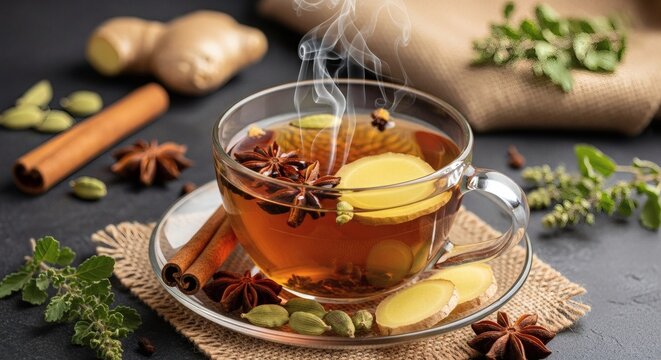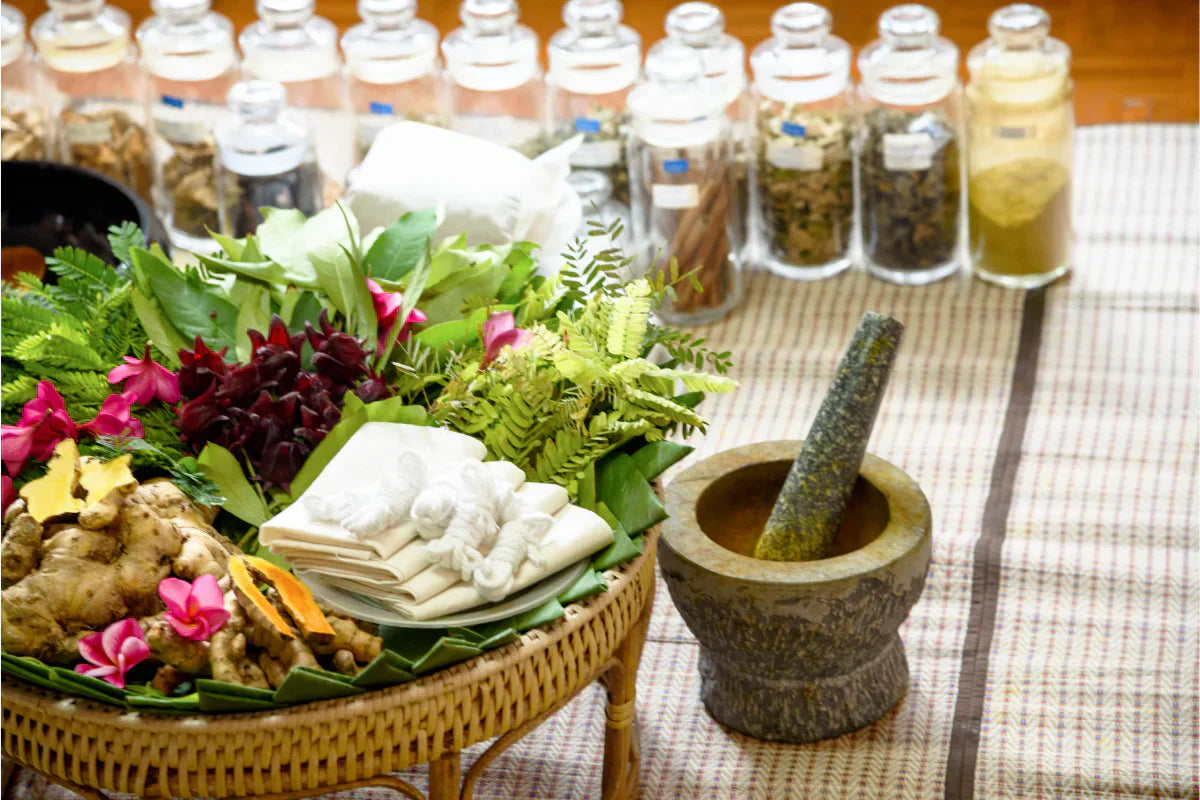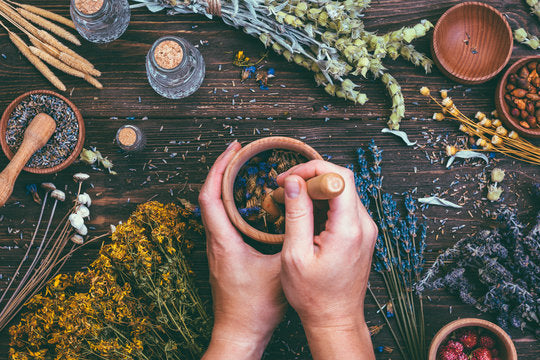Kids and Ayurvedic Toothpaste: Is It Safe and Effective?
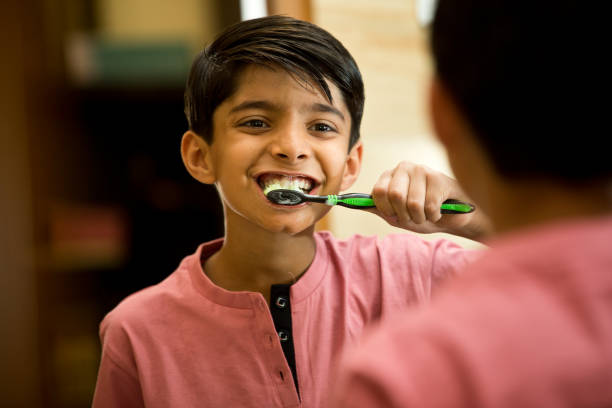
Modern parents are becoming increasingly conscious about what goes into their children’s daily routine, including their toothpaste. With concerns about chemicals, fluoride, and artificial additives in conventional kids’ pastes, Ayurvedic toothpaste is gaining popularity as a safer, more holistic choice. Rooted in the wisdom of Ayurveda, these herbal blends use natural ingredients like neem, licorice, amla, and clove to protect children’s teeth and gums without exposing them to harmful chemicals.
This guide explores everything parents need to know about Ayurvedic oral care for kids, from safety to benefits, comparisons with regular toothpaste, and tips for building a healthy brushing routine.
Is Ayurvedic Toothpaste Safe for Children to Use?
Generally, Ayurvedic toothpastes are considered safe and even beneficial for children above 5-6 years of age.
Free of harmful ingredients, including triclosan, SLS, parabens, artificial sweeteners, and fluoride (harmful in excess), Ayurvedic toothpastes contain healing herbs with time-tested antimicrobial and strengthening properties.
If swallowed (as children are apt to do), ingredients such as fluoride in regular toothpastes are likely to be harmful. Since Ayurvedic toothpastes contain gentle herbs such as Licorice, Fennel, Babool, and Amla, no harm is done if the toothpaste is accidentally swallowed. Other than being safe, these herbs support gum and enamel health.

Why Ayurvedic Toothpastes are Safe
-
No harsh chemicals or synthetic foaming agents
-
Safe for delicate milk teeth and gums
-
Naturally sweet or mild in taste (child-friendly herbs like fennel or licorice)
-
Supportive of the oral microbiome
At What Age Can Children Start Using Ayurvedic Toothpaste?
-
Under 18 months: Avoid using any toothpaste. Instead, gently massage gums with a clean finger and natural oils like coconut oil or ghee, or wipe with a soft cloth after feeding.
-
18 months to 5 years: Stick to plain water brushing or gentle gum cleaning. At this stage, children may not consistently spit out paste, so it’s best to avoid toothpaste, even mild herbal ones, unless recommended by a pediatric dentist.
-
5 years and above: This is the safest age to begin using Ayurvedic toothpaste regularly. By this age, children can reliably spit out the paste, making it safer to introduce a pea-sized amount of mild, fluoride-free herbal toothpaste. Choose kid-friendly formulations with gentle herbs like fennel, licorice, or babool for an easy transition, Maharishi Ayurveda Ayurvedic Toothpaste which is completely chemical-free.
Note: While some experts say that under supervision, it is safe to introduce Ayurvedic toothpastes into brushing routines at 2 years of age, 5 years is generally considered a safe age to start your child on his or her Ayurvedic dental care routine.
How Does Ayurvedic Toothpaste Compare to Regular Kids’ Toothpaste?
|
Feature |
Ayurvedic Toothpaste |
Conventional Kids’ Toothpaste |
|
Fluoride |
No fluoride – herbs like neem, triphala, and amla offer natural cavity protection |
Often contains fluoride as the main anti-cavity agent |
|
Synthetic Flavors |
Free from artificial sweeteners and flavors – uses mild herbs like fennel or licorice |
Frequently includes artificial flavors and sweeteners |
|
Herbal Actives |
Enriched with natural actives (e.g., neem, clove, babool, miswak) |
Rarely uses herbal ingredients |
|
Safety if Swallowed |
Safe in small amounts since chemical-free |
Varies – swallowing fluoride or chemicals may be a concern |
|
Gum & Enamel Support |
Strengthens gums, supports enamel, balances oral pH naturally over time |
Limited long-term gum and enamel benefits |
Which Ayurvedic Herbs Are Best for Children’s Oral Health?
Neem (Azadirachta indica)
Is antibacterial, anti-caries, and plaque-preventive. The bioactive compounds in the herb, including azadirachtin and nimbidin, fight cavity-causing bacteria such as Streptococcus mutans. The herb also helps reduce plaque formation and supports long-term oral hygiene. Regular use of a toothpaste with Neem may naturally soothe gum inflammation and prevent bad breath.
Licorice (Mulethi / Glycyrrhiza glabra)
It is naturally sweet, soothes gums and reduces irritation. The herb contains glycyrrhizin and licoricidin, both inhibit cavity-causing bacteria. The mild taste of the herb with its sweet undertones makes toothpastes with Mulethi a sure-shot favourite with children.
Babool (Acacia arabica)
Strengthens teeth and prevents plaque buildup. Its astringent properties are known to tighten gums and reduce bleeding. Traditionally used as a chewing stick (datun), Babool is believed to protect enamel and support gum immunity in growing children.
Amla (Indian Gooseberry / Emblica officinalis)
It is packed with Vitamin C and boosts gum health. It enhances collagen synthesis, which is crucial for strengthening connective tissues and gums. The antioxidant properties of Amla help reduce oxidative stress, inflammation, and tackle early signs of gum sensitivity.
Fennel (Foeniculum vulgare)
Freshens breath, acts as a mild antimicrobial, and provides digestive support.
It has a pleasing flavour and sweetish taste, enjoyed by children. Fennel is also a mild herb, great for children who may have high oral sensitivity.
Clove (Syzygium aromaticum)
Has a sharp, strong impact but since it is antimicrobial, pain-relieving and anti-inflammatory, a small amount in children’s toothpaste is beneficial. The presence of eugenol (a natural aromatic compound) in Clove helps reduce toothache and fights bacterial growth. The herb may be particularly helpful during teething years to ease gum irritation and prevent infections.
Triphala (Amalaki, Haritaki, Bibhitaki)
A formulation of three potent herbs is antioxidant and antimicrobial. Other benefits include gum-strengthening, promoting salivary defences, and preventing cavities. The unique mix of herbs helps balance the oral microbiota by reducing the growth of harmful bacteria.
Miswak (Salvadora persica)
Strengthens enamel, balances oral pH and prevents decay. The herb contains natural fluoride, silica, and vitamin C, which help reduce bacterial growth while brightening and polishing teeth. Traditionally, Miswak twigs are used as a natural toothbrush (datun), and is a gentle way to cleanse young teeth.
What If My Child Dislikes the Taste of Herbal Toothpaste?
Herbal flavours may require some getting used to. Here are ways to get your child started on the journey of natural oral care.
-
Get a soft-bristled toothbrush and start your child with a small amount, maybe mixed with coconut oil or any edible oil your child is familiar with.
-
Choose a toothpaste that contains mild Ayurvedic herbs such as fennel or cardamom.
-
Make brushing routines fun - get a toothbrush designed after his or her favourite cartoon character, make a particular song the ‘brushing-time’ background music - anything to make the activity a fun thing to do, not a boring chore.
-
Remember to persist for 1-2 weeks at a stretch, twice daily - taste aversion is likely to fade and the use of the toothpaste will become a habit.
-
Set an example – shift to an Ayurvedic toothpaste for the entire family’s brushing routine.
Get your child to combine tongue-cleaning and rinsing for complete oral hygiene. (Make this interesting – perhaps by switching off the music and singing a ‘finale’ yourself as he/she finishes off the process.)
Is Ayurdent Suitable for Children?
Maharishi Ayurdent Toothpaste is one of the finest Ayurvedic toothpastes in India, formulated with authentic herbs from the ancient Ayurvedic tradition. However, the Classic variant may be too strong for very young children.
-
For children over 2 years old, use a pea-sized amount.
-
If the child finds it too strong, start with Ayurdent Mild, designed for sensitive gums and children.
What Benefits Can Children Get from Ayurvedic Toothpaste?
-
Stronger gums & enamel from herbs like neem, babool, and triphala
-
Natural cavity protection without fluoride or synthetic chemicals
-
Fresh breath & oral cleanliness with antimicrobial herbs
-
Balanced oral pH & microbiome, preventing long-term decay
Gentle care for sensitive gums and growing teeth
Common Parental Concerns About Herbal Toothpaste for Kids
1. Will it be too spicy or bitter?
Not all are strong-tasting; mild variants with fennel or licorice are perfect for kids.
2. Is it okay if my child swallows a little?
Yes, safe in small amounts since they are free from fluoride and harsh chemicals.
3. Will it clean teeth effectively without fluoride?
Yes, herbs like neem, triphala, and amalaki protect teeth and gums naturally with regular brushing.
4. It doesn’t foam, will it still work?
Yes, foaming isn’t linked to cleaning. Herbal pastes clean through antimicrobial and strengthening herbs.
5. Are there any side effects?
Minimal, if you choose certified, chemical-free brands. Always check labels for authenticity.
How to Build a Brushing Routine for Kids with Ayurvedic Toothpaste
-
Use a soft-bristled toothbrush and a pea-sized amount.
-
Brush twice daily, especially before bedtime.
-
Encourage brushing through stories, songs, or reward systems.
-
Lead by example, children copy their parents’ habits.
-
Combine with tongue cleaning and rinsing for complete oral hygiene.
Conclusion
Introducing Ayurvedic toothpaste into your child’s routine is one of the simplest ways to ensure safe, effective, and chemical-free oral hygiene. With natural herbs like neem, amla, licorice, babool, and clove, these formulations protect against cavities, strengthen gums, and promote lifelong healthy habits.
For parents seeking a trusted choice, Maharishi Ayurdent Toothpaste stands out as one of the best Ayurvedic toothpastes in India, offering both Classic and Mild variants suitable for children.
Start early, stay consistent, and give your child the gift of Ayurvedic oral care—naturally strong teeth and healthy gums, for life.
FAQs
1. Can babies under 2 use herbal toothpaste?
For babies under 2, it’s best to avoid toothpaste altogether. At this age, gentle gum massage with a clean finger and oils like ghee or coconut oil, or wiping teeth with a soft cloth, is usually recommended. Once your child is around 18–24 months old and can spit reliably, you may introduce a pea-sized amount of mild, fluoride-free Ayurvedic toothpaste under supervision. Always choose formulations with gentle herbs such as fennel, licorice, or babool that are safe if swallowed in small amounts.
2. What if my child has sensitive gums or teeth?
Children with sensitive gums or early signs of discomfort benefit from mild, non-foaming Ayurvedic toothpastes. Herbs like licorice, amla, and babool provide natural soothing and strengthening without the harsh chemicals or abrasives found in some conventional pastes. Look for products labeled SLS-free and chemical-free to minimize irritation. If sensitivity persists, consult a pediatric dentist to rule out underlying issues.
3. Can I alternate between Ayurvedic and regular toothpaste?
Alternating between Ayurvedic and regular toothpaste is not necessary. A well-formulated Ayurvedic toothpaste already provides cavity protection, gum strength, and fresh breath without fluoride, triclosan, or synthetic flavors. Consistency is key for children’s oral health, so it’s better to stick to one safe, gentle herbal toothpaste rather than switching back and forth.
Popular Posts

Rheumatoid Arthritis in Ayurveda: Can Detox and Digestion Support Joint Health?
23 Jan, 2026Rheumatoid arthritis (RA) is a widely known joint condition, but did you know that Ayurveda trace...
Read more
Natural Ayurvedic Detox: Gentle Home Remedies
23 Jan, 2026What does natural detox really mean in Ayurveda? Essentially, this practice refers to the elimina...
Read more
Winter Weight Gain and Brain Fog: Ayurveda Explains Why
22 Jan, 2026What’s the trigger for winter weight gain? Why do we often experience brain fog, feel dull and he...
Read more




 Popular Read
Popular Read













































